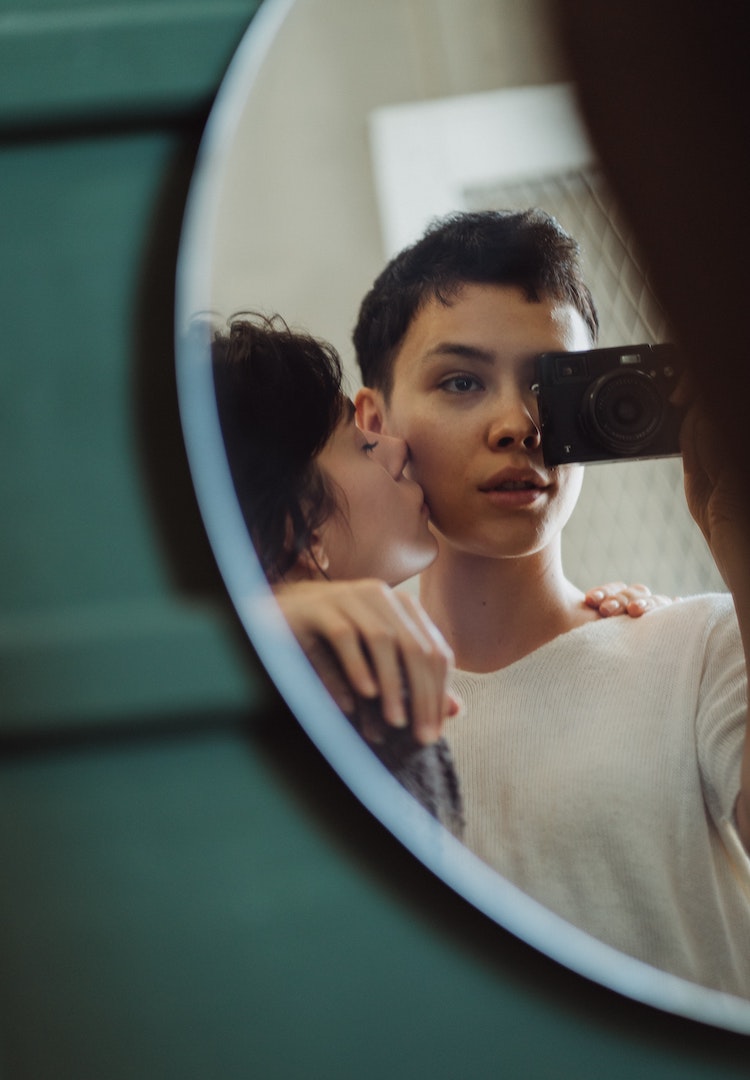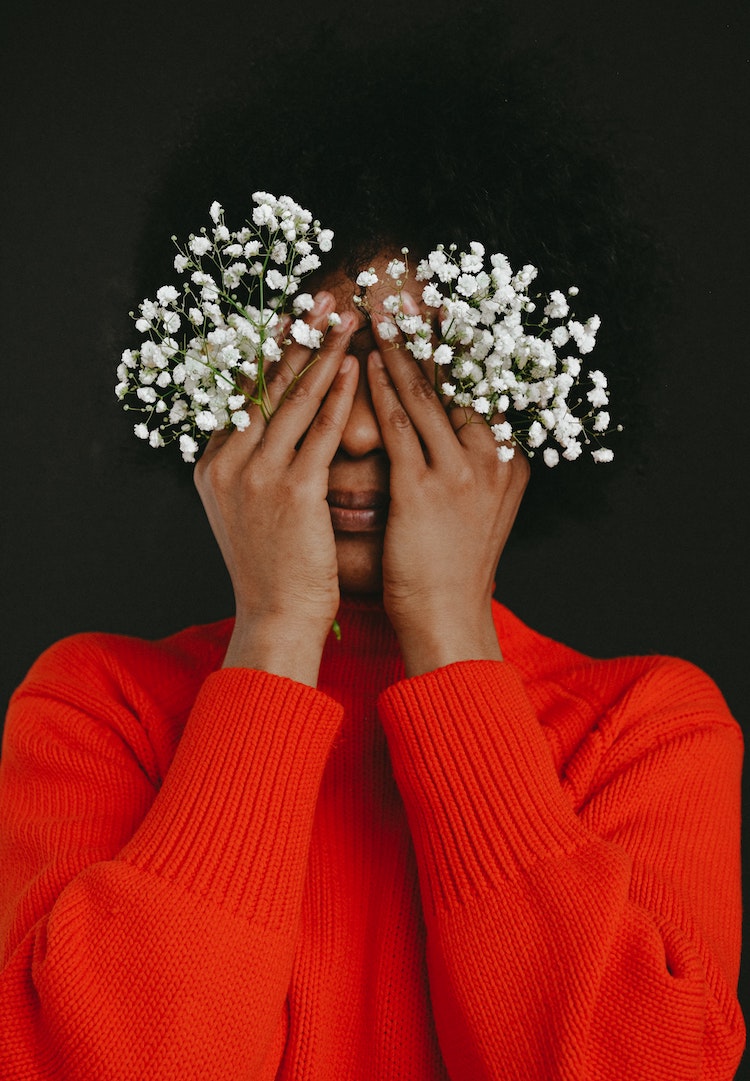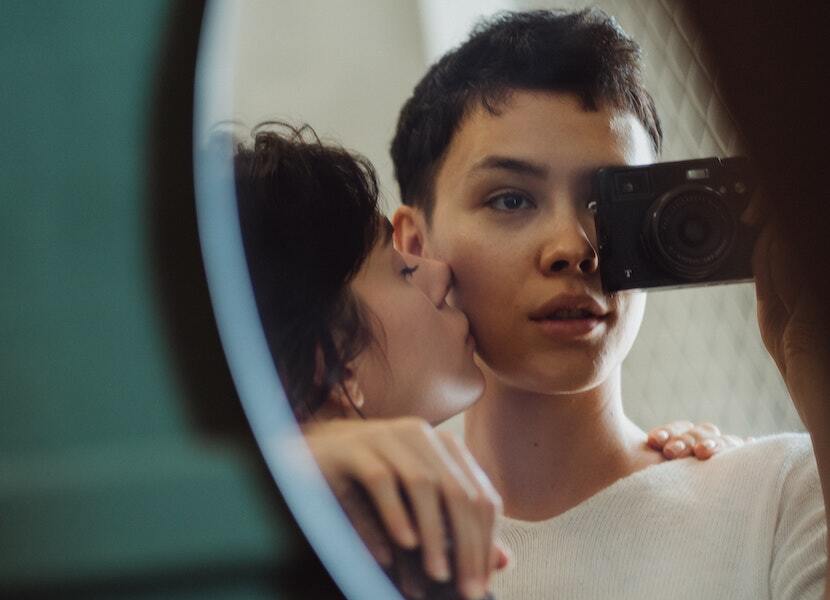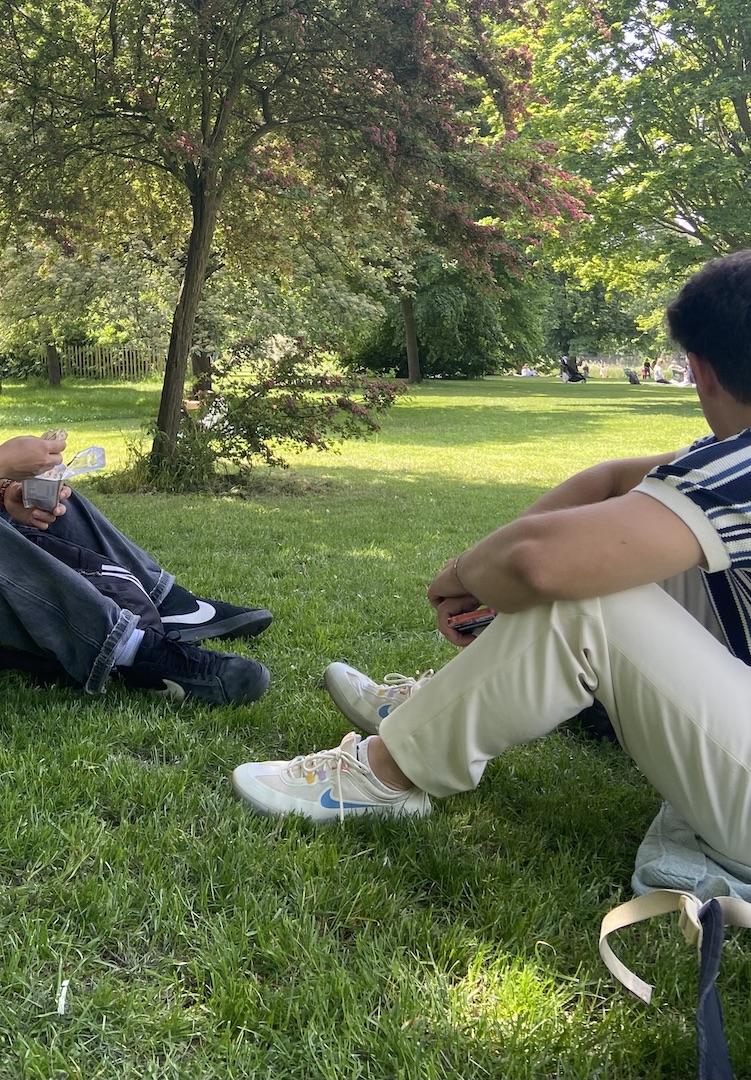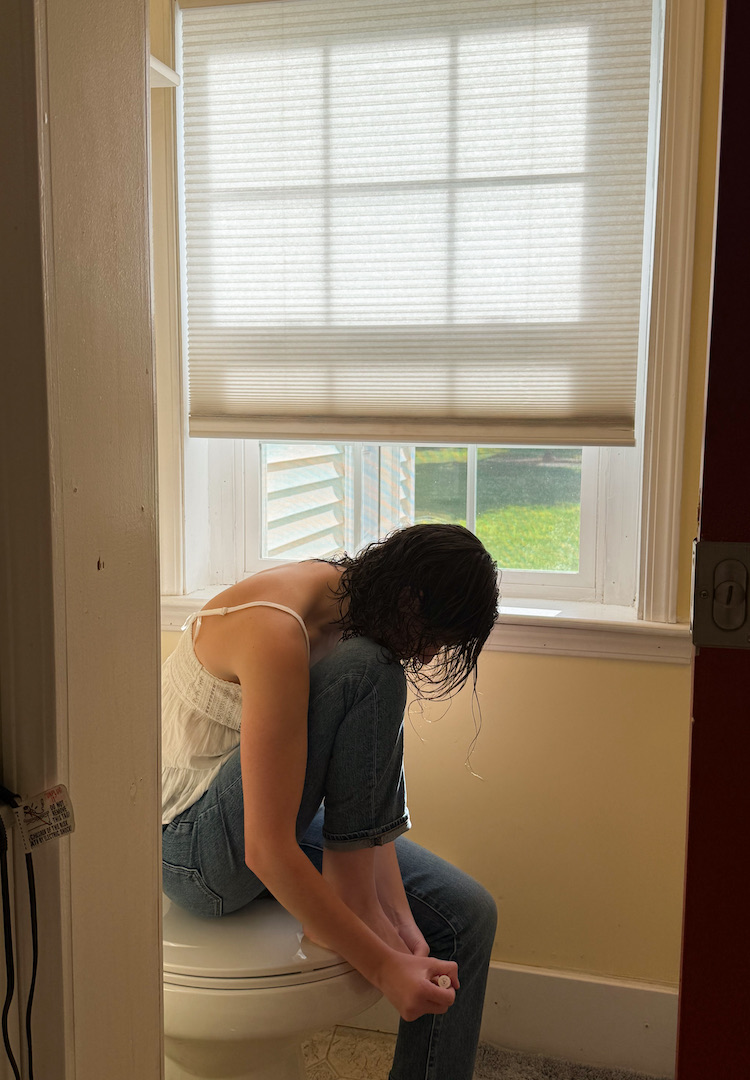A sex therapist explains sexual fantasies
WORDS BY HANNAH COLE
The sexy daydream with a purpose.
As we more openly discuss many aspects of sexual wellness and experience, one topic is frequently avoided: the idea of sexual fantasies. Some of us are in tune with our inner thoughts, and others have given it little focus. Whether you’re aware of them or not, sexual fantasies can play a significant role in our lives and serve many functions.
Looking for more thought-provoking reads? Try our Life section.
It’s time we peel away the veil and give our sexy little daydreams the airtime they deserve. To find out more, I asked certified sex coach Georgia Grace to weigh in. This is fitting, considering she recently launched her podcast, In Bed. The subject of the first episode? Sexual fantasies, of course.
What are sexual fantasies?
Georgia defines a sexual fantasy as “something or an idea that your mind goes to, and it has the capacity to turn you on”. In the first episode of her podcast, she interviews Dr Lauren Rosewarne, an Associate Professor in the School of Social and Political Sciences at the University of Melbourne (with a focus on sexuality, gender, feminism and more). Dr Lauren identifies sexual fantasies as “euphemisms for daydreams”, a romantic and rather poetic way to describe where our minds go.
As noted in the episode, the content of sexual fantasies can vary greatly, from Santa-themed escapades around Christmastime to sex with someone of a gender we aren’t typically drawn to. “It could be group sex settings, sex in nature or in really idyllic situations [or] power play and power dynamics,” adds Georgia. We might even bring up past experiences and relive these in our minds.
What purpose does a sexual fantasy serve?
The role of a sexual fantasy differs from person to person. “Our brain is essentially our largest erogenous zone, and it plays a vital role in arousal and sexual function,” says Georgia. “For some people, fantasising can be vital for them in feeling really present in building arousal in their body – in building so much arousal that they experience orgasm. It can allow for them to discover new things that they really never thought that they would enjoy.”
Others might see sexual fantasies as a way to engage in sexual exploration. They’re an opportunity to “get kinky [and] try something new”. It can also be a way to connect with a partner and cultivate a rewarding sexual experience. Noting that desire discrepancy is a reality for many couples, Georgia shares that sexual fantasies might be a useful practice to implement. Think about the things that turn you on, focusing on the accelerators (what increases your desire) and recognising some of the brakes (what turns you off).
“Lots of people find it useful to start thinking about sex – to prioritise these thoughts – so that it does become front of mind. That opportunity to fantasise can do a lot for people to kick into their responsive desire, get the stimulation or the stimulus that they need and start making sex more of a priority for them,” she explains. Of course, sexual fantasies also serve another role. Sometimes they’re simply fun, make you feel good and are exciting.
Identifying your sexual fantasies
It’s all well and good to talk about the perks of a sexual fantasy, but what if you’re not sure what really turns you on? What sexual desires are waiting to be discovered? In a world of deadlines and being ‘always on’, it’s this part of life that can fall to the wayside. We don’t give ourselves the time to let our minds expand and explore. I ask Georgia how we can learn to prioritise and engage with these thoughts.
“It’s as simple as letting your mind wander,” she says. “You may intend to think about something, whether it’s something that you’ve seen before on TV, or maybe you’ve seen in porn, or you’ve heard someone talk about. Maybe it’s something that feels really exciting for you and just [allow] your mind to wander. That can be either through journaling, writing about it; you may be on the bus on the way to work and just thinking about something that’s turning you on.”
Google is a helpful research tool, Georgia notes. “[It’s] a magical world, and it hosts many, many different sexual experiences and ideas.” Some things will turn you on, and others won’t; it’s a purely individual thing. Discuss with people or sexual partners that you trust (if it feels safe to do so with). Make the time for solo research and exploration. Look inward and identify these innermost fantasies, these unique sexy thoughts of yours.
Sexual fantasies within a relationship
Should we share our sexual fantasies with a partner, and, importantly, do we have to live out these desires with them? “Sharing and discussing sexual fantasies must involve consent, just like any other sexual experience or act,” Georgia highlights. If your partner isn’t comfortable – about sharing their fantasies or hearing about yours – “then you have to respect that boundary”.
If they are excited, curious and willing to explore, then make the appropriate time that feels safe to discuss (i.e. maybe not right before, during or after sex). “Instead, [talk about it] over dinner, on a walk, while you’re driving, so that people feel like they have autonomy in communicating and they’re perhaps not too vulnerable in it being a sexual experience.”
If we’re being honest with ourselves, a lot of our sexual fantasies might not involve our partner. Instead, it’s about an unidentified person, a particular situation, or maybe even Santa. Be tactful when discussing these. “Some people get really turned on by hearing about their partner’s fantasies with someone else, [and] hearing about their partner having sex with someone else can feel really exciting.” For other people, Georgia continues, “that can feel triggering and traumatic and make them feel really unsafe”. As she says, “Make sure that safety is present and that you’re not going to do more harm than good”.
The shame that comes with sexual fantasies
Unfortunately, there is often inherent shame associated with sexual fantasies. We’re reserved. They can be personal and deep, and “people can assume that sharing their fantasy is an insight into their innermost workings of who they are as a sexual person”. Importantly, Georgia adds that yes, sometimes it can be a view inside, “but sometimes it is just a sexy daydream”. You might want to live out these fantasies one day, or maybe they are content living in your mind.
“It’s where your mind goes, it’s sexually relevant, it’s exciting, and it turns you on. I think there is absolutely no shame in having fantasies, and it can be really exciting to explore them, whether that’s in your mind or in reality, so long as everyone is excited about being there.” Dig deep; it’s time to go exploring.
For more about sexual fantasies, try this.


